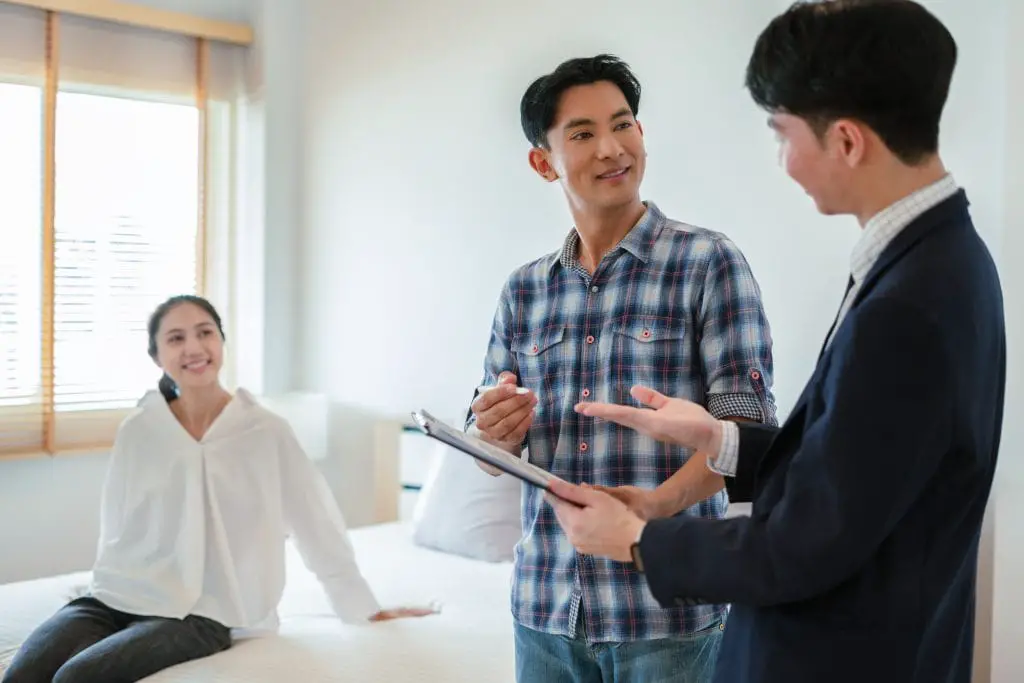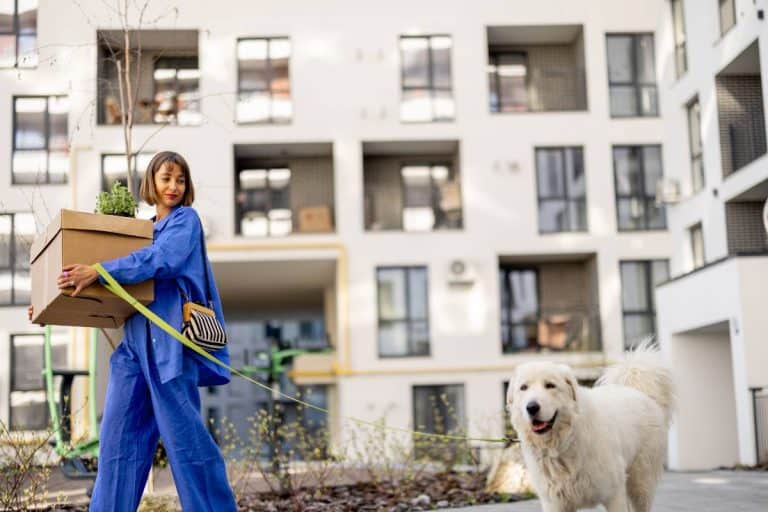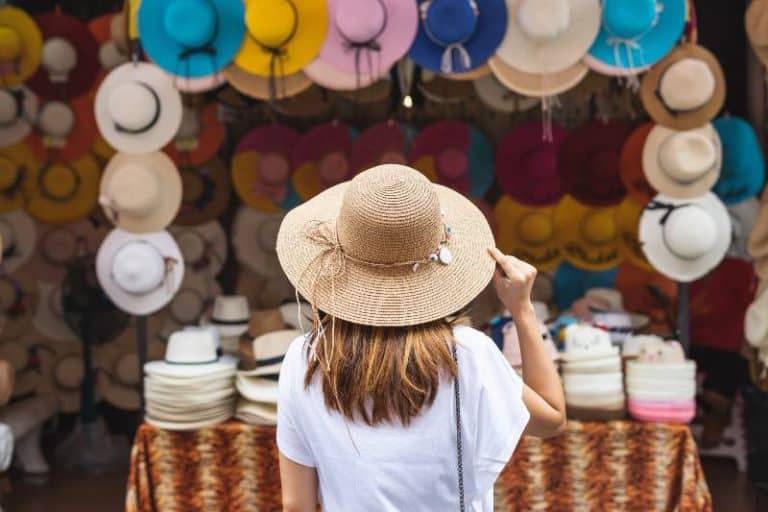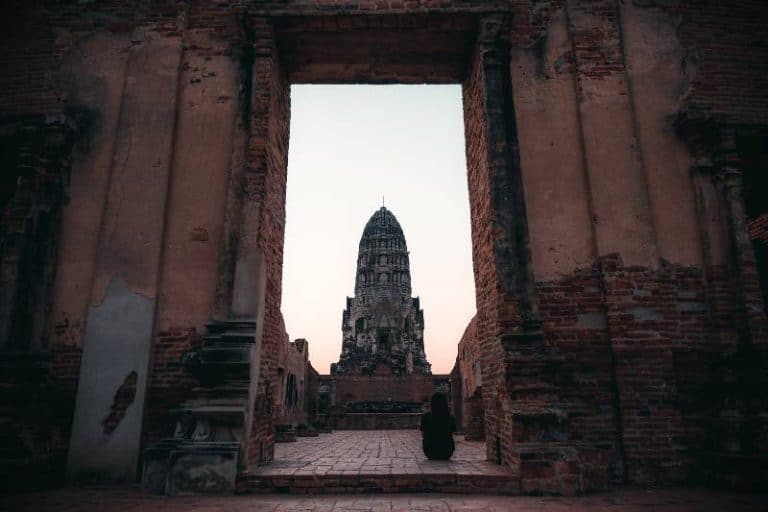Thai Apartment Viewing Rules: Essential Guide for Expats
Moving to Thailand and navigating the rental market can feel overwhelming, especially when you’re unfamiliar with local customs. After helping countless expats find their perfect apartment in Bangkok, I’ve learned that understanding thai apartment viewing rules isn’t just about etiquette—it’s about setting yourself up for success in Thailand’s competitive rental market. These essential tips will help you make the right impression and secure your ideal home in Thailand.
Key Takeaways
• Respect Thai customs – Remove shoes, dress appropriately, and show genuine interest during apartment tours
• Timing matters – Schedule viewings during appropriate hours and arrive punctually to make a good impression
• Come prepared – Bring required documents, cash for deposits, and questions about lease terms and amenities
Understanding the Thai Rental Landscape

Thailand’s rental market, particularly in Bangkok, operates differently from Western countries. The rental process involves specific protocols that reflect Thai culture and business practices. Whether you’re apartment hunting in Bangkok’s central districts like Sukhumvit or exploring high-rise options near BTS Skytrain and MRT subway stations, knowing these unwritten rules can make or break your rental application.
The average rental prices in Bangkok vary significantly depending on location and amenities. From budget-friendly apartments near MRT stations to high-end condos in prime locations, the rental rates can range from modest monthly rent to premium pricing for fully furnished units with comprehensive amenities and services.
Essential Apartment Viewing Etiquette
Dress Code and Appearance
When viewing a rental property in Thailand, your appearance speaks volumes before you even introduce yourself. Thais place significant importance on presentation, and this extends to the rental process. Dress business casual or smart casual—think clean, pressed clothes that show respect for the occasion.
Avoid overly casual attire like shorts, flip-flops, or tank tops, especially when viewing high-end apartments or meeting with real estate agents. Your appearance demonstrates your seriousness as a potential tenant and your respect for Thai culture.
The Shoe Removal Protocol
One of the most important Thai apartment viewing rules involves shoes. Most apartment buildings and certainly individual units require shoe removal before entering. This isn’t just tradition—it’s a sign of respect and cleanliness that landlords highly value.
Bring clean socks or small slippers if you’re uncomfortable being barefoot. Some modern condos in central Bangkok may not require shoe removal in common areas, but it’s always safer to ask rather than assume.
Punctuality and Scheduling
Thai culture values punctuality, but the concept of “Thai time” can sometimes create confusion for newcomers. When scheduling apartment tours, arrive exactly on time or slightly early. This shows respect for the landlord’s schedule and demonstrates reliability—a crucial trait landlords seek in tenants.
Schedule viewings during appropriate hours, typically between 10 AM and 6 PM on weekdays, or 10 AM to 4 PM on weekends. Avoid requesting late evening or very early morning viewings unless absolutely necessary.
Building Rapport with Landlords and Agents
Communication Style
Thai communication tends to be indirect and polite. When expressing interest or concerns about a rental property, frame your comments positively. Instead of saying “This apartment is too small,” try “I’m looking for something more spacious.” This approach maintains harmony while clearly communicating your needs.
Real estate agents in Bangkok often speak English, but showing effort to learn basic Thai phrases demonstrates respect and can work in your favor. Simple greetings and “thank you” go a long way in building rapport.
Showing Genuine Interest
During the apartment tour, ask thoughtful questions about the lease agreement, monthly rental rates, and included amenities. Show interest in the neighborhood, proximity to BTS Skytrain or MRT stations, and local facilities. This demonstrates you’re considering the location as a long-term home rather than just temporary accommodation.
Landlords prefer tenants who appreciate their property’s unique features, whether it’s the spacious layout, modern appliances, or strategic location near Bangkok’s central business districts.
Financial Etiquette and Negotiations
Security Deposits and Documentation
Come prepared with necessary documentation, including passport copies, work permits, and financial statements. Many rental agreements require one to three months’ rent as a security deposit, so having access to funds demonstrates your financial capability.
While rental prices are sometimes negotiable, approach negotiations respectfully. Rather than demanding lower rent, inquire about what’s included in the monthly rent—utilities, internet, maintenance services, or access to building amenities.
Understanding Lease Terms
Thai lease agreements typically run for one year, though monthly rental options exist, particularly for serviced apartments and some condos near major transit lines. Ask about lease renewal terms, rent increase policies, and what happens if you need to terminate early.
For apartments that come fully furnished, clarify what’s included and the condition expectations upon lease termination. High-end properties often have detailed inventory lists to prevent disputes later.
Navigating Different Property Types
Condominiums vs. Traditional Apartments
Modern condos in areas like Sukhumvit often have different viewing protocols than older apartment buildings. High-rise condos may require visitor registration, while traditional apartment complexes might have more relaxed entry procedures.
Serviced apartments typically offer more flexible viewing schedules and may include hotel-style amenities. These options are popular among expats seeking short-term accommodation while apartment hunting in Bangkok.
Location-Specific Considerations
Apartments near BTS Skytrain and MRT subway stations command premium rental rates but offer convenience that justifies the cost for many expats. When viewing these properties, understand that competition is fierce, and decision-making timelines are often shorter.
Properties in central districts like Sukhumvit or near business centers may have stricter application processes and higher security deposits. Landlords in these areas often have multiple interested parties, so following proper etiquette becomes even more crucial.
Common Mistakes to Avoid
Rushing the Decision Process
While Bangkok’s competitive rental market creates pressure to decide quickly, avoid appearing desperate or making hasty commitments. Take time to ask questions, understand all costs involved, and review lease terms carefully.
Don’t immediately accept the first apartment that meets your basic criteria. The perfect apartment should align with your lifestyle, budget, and long-term plans in Thailand.
Overlooking Important Details
During viewings, check water pressure, air conditioning functionality, internet connectivity, and noise levels from neighboring units or street traffic. These practical considerations significantly impact your living experience but are often overlooked during the excitement of apartment hunting.
Ask about building security, parking availability, and guest policies. These factors become important once you’re actually living in the space.
Cultural Insensitivity
Avoid making direct comparisons to your home country’s rental practices or expressing frustration with local customs. This creates negative impressions and can eliminate you from consideration, regardless of your financial qualifications.
Similarly, don’t rush physical interactions like handshakes. Wait for cues from Thai counterparts and follow their lead regarding appropriate greetings and interactions.
Making Your Application Stand Out
Documentation Preparation
Organize all required documents in both physical and digital formats. Having everything readily available shows preparedness and professionalism. Include reference letters from previous landlords if available, as character references carry significant weight in Thai rental culture.
For expats new to Thailand, employment letters from your company or proof of international income sources help establish credibility with potential landlords.
Following Up Appropriately
After viewing an apartment you’re interested in, send a polite thank-you message within 24 hours. Express specific appreciation for the landlord’s time and mention particular features you found appealing.
If you decide to apply, submit your application promptly with all required documentation. Delayed responses often signal lack of serious interest to Thai landlords.
The Digital Age of Apartment Hunting
Online Platforms and Virtual Tours
While online listings and virtual tours have become common, especially post-pandemic, in-person viewings remain crucial in Thailand’s rental market. Use online resources to narrow down options, but prioritize physical visits for final decisions.
When comparing Airbnb options in Bangkok for short-term stays while apartment hunting, remember that long-term rental agreements and accommodation options follow different rules and expectations.
Social Media and Networking
Expat Facebook groups and professional networks often provide insider tips about available apartments and landlord recommendations. These communities can offer valuable insights about specific buildings, neighborhoods, and rental experiences.
However, always verify information independently and conduct proper viewings regardless of personal recommendations.
Seasonal Considerations and Timing
Peak Rental Seasons
Bangkok’s rental market has distinct peak seasons, typically aligning with academic calendars and business cycles. International school families often relocate during summer months, creating increased competition for family-friendly apartments.
Business relocations frequently occur at year-end and beginning of new fiscal years, affecting availability and rental rates in business districts.
Weather and Viewing Comfort
Thailand’s tropical climate affects viewing comfort, particularly for apartments without adequate air conditioning during tours. Schedule viewings during cooler parts of the day when possible, and dress appropriately for both professional appearance and climate comfort.
Rainy season viewings can reveal important information about drainage, flooding potential, and building maintenance quality that wouldn’t be apparent during dry periods.
Building Long-term Relationships
Maintaining Good Tenant Relations
The rental process doesn’t end with signing the lease agreement. Maintaining positive relationships with landlords, building management, and neighbors creates a better living experience and can lead to favorable lease renewals or recommendations for future rentals.
Regular communication about property maintenance needs and prompt rent payments build trust and demonstrate your value as a responsible tenant.
Understanding Cultural Nuances
Thai culture emphasizes relationship-building over purely transactional interactions. Taking time to understand local customs, participating in building community events when appropriate, and showing respect for Thai traditions creates positive impressions that extend beyond the initial rental process.

FAQs
How much notice should I give when scheduling an apartment viewing in Bangkok?
Is it acceptable to negotiate rental prices in Thailand?
What documents should I bring to apartment viewings?
How do security deposits work for rental properties in Thailand?
Should I use a real estate agent or search independently?
Conclusion
Mastering thai apartment viewing rules opens doors to better rental opportunities and smoother experiences in Thailand’s dynamic property market. These protocols aren’t just formalities—they’re pathways to building the relationships and reputation that make your time in Thailand more enjoyable and successful.
Ready to start your apartment hunt with confidence? Better Living Asia’s experienced team understands the nuances of Thailand’s rental market and can guide you through every step. From identifying the perfect neighborhoods to navigating lease negotiations, we’re here to make your transition to Thai living seamless. Schedule a consultation with us today and let’s find your ideal home in Thailand together.






